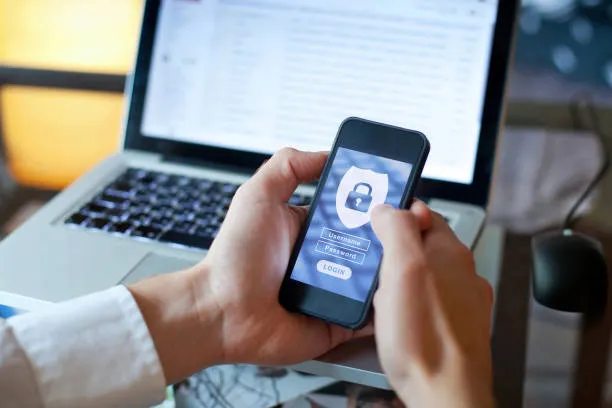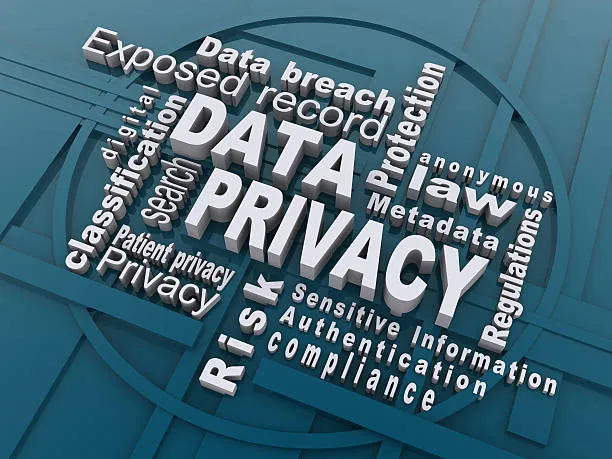Data privacy has become one of the biggest concerns in the United States. With the rapid rise of technology, social media, and artificial intelligence, companies and governments are collecting more data than ever. While this has benefits, such as personalized services and improved security, it also raises ethical concerns about how personal data is collected, stored, and used.
In this article, we will explore the ethical debate surrounding data privacy, key concerns, regulations, and what individuals can do to protect themselves.

1. What is Data Privacy?
Data privacy refers to the protection of personal information from unauthorized access, use, or sharing. It involves how companies, governments, and other entities handle data collected from individuals, including:
- Personal details (name, address, phone number)
- Financial information (bank details, credit card numbers)
- Online behavior (browsing history, social media activity)
- Health records and biometric data
Many people do not realize how much of their personal data is being collected every day, often without their explicit consent.
2. Why is Data Privacy Important?
Data privacy is crucial because it affects individuals’ rights, security, and freedom. Some major reasons why data privacy matters include:
a. Protection from Identity Theft and Fraud
Hackers can steal personal data and use it for fraudulent activities such as:
- Opening bank accounts in your name
- Committing tax fraud
- Making unauthorized purchases
b. Preventing Unauthorized Surveillance
Governments and corporations track online activities, raising concerns about mass surveillance and loss of privacy rights.
c. Maintaining Personal Freedom
When companies track user behavior, they manipulate consumer choices through targeted advertising, political influence, and misinformation campaigns.
d. Avoiding Data Misuse by Big Tech Companies
Tech giants like Google, Facebook, and Amazon collect vast amounts of data, which they use for profit. In some cases, they sell this data to third parties, raising ethical concerns.

3. The Ethical Dilemma: Convenience vs. Privacy
Many people accept data collection because it offers benefits like personalized recommendations and free access to services. However, this convenience comes at a cost.
a. Are We Willing to Sacrifice Privacy for Convenience?
- Smart devices (Alexa, Google Home) record conversations to improve user experience, but is it ethical?
- Social media platforms analyze behavior to show relevant ads, but does this violate privacy rights?
b. Who Controls the Data?
- Should companies have the right to collect and sell user data?
- Should individuals be given full control over their digital footprints?
c. The Role of Governments
- Governments need data for national security, but where should the line be drawn between security and personal freedom?

4. Data Privacy Laws in the U.S.
Unlike Europe, where the General Data Protection Regulation (GDPR) protects personal data, the U.S. lacks a single, comprehensive law for data privacy. Instead, multiple regulations cover different aspects:
a. The California Consumer Privacy Act (CCPA)
- Gives California residents the right to know what personal data companies collect
- Allows users to opt out of data sales
- Requires businesses to delete user data upon request
b. The Health Insurance Portability and Accountability Act (HIPAA)
- Protects health-related information from being shared without patient consent
c. The Children’s Online Privacy Protection Act (COPPA)
- Prevents companies from collecting data from children under 13 without parental consent
d. Other State-Level Privacy Laws
- Virginia, Colorado, and Utah have passed privacy laws, but enforcement remains a challenge

5. Big Tech’s Role in Data Privacy Issues
Tech companies hold immense power over user data, and their practices often come under scrutiny.
a. Facebook and Cambridge Analytica Scandal
- Millions of Facebook profiles were harvested without user consent to influence elections
- Sparked global concerns over social media data exploitation
b. Google’s Data Collection Practices
- Tracks user search history, location, and online behavior
- Accused of misleading users about privacy settings
c. Amazon’s Alexa and Privacy Concerns
- Smart speakers record and store voice commands, raising concerns about home surveillance
6. How Can Individuals Protect Their Data?
While companies and governments play a role in data privacy, individuals can take steps to protect their information.
a. Adjust Privacy Settings
- Review privacy settings on social media, apps, and devices
- Limit the data you share online
b. Use Strong Passwords and Two-Factor Authentication
- Enable two-factor authentication for extra security
- Use unique passwords for different accounts
c. Avoid Public Wi-Fi for Sensitive Transactions
- Public networks are vulnerable to hackers
- Use a VPN for secure browsing
d. Be Mindful of What You Share Online
- Avoid sharing personal details publicly on social media
- Think twice before clicking on suspicious links or downloading unknown files
7. The Future of Data Privacy
The debate on data privacy is far from over. As technology evolves, new challenges will emerge.
a. Artificial Intelligence and Data Privacy
- AI algorithms analyze personal data to make predictions, but who ensures ethical use?
- The risk of biased AI decisions affecting job opportunities, insurance rates, and more
b. Blockchain as a Solution?
- Decentralized data storage could give users more control over their personal information
c. Stricter Privacy Laws on the Horizon
- Growing demand for a national privacy law in the U.S.
- Companies may be forced to be more transparent about data collection
Conclusion
Data privacy is one of the most critical issues of the digital age. While technology provides incredible benefits, it also exposes users to risks like identity theft, surveillance, and data misuse. As the ethical debate continues, individuals, companies, and governments must work together to find a balance between innovation and privacy protection.
By staying informed and taking proactive measures, you can better protect your personal data in an increasingly digital world.
5G Revolution: How It’s Changing Communication & Business in the USA






